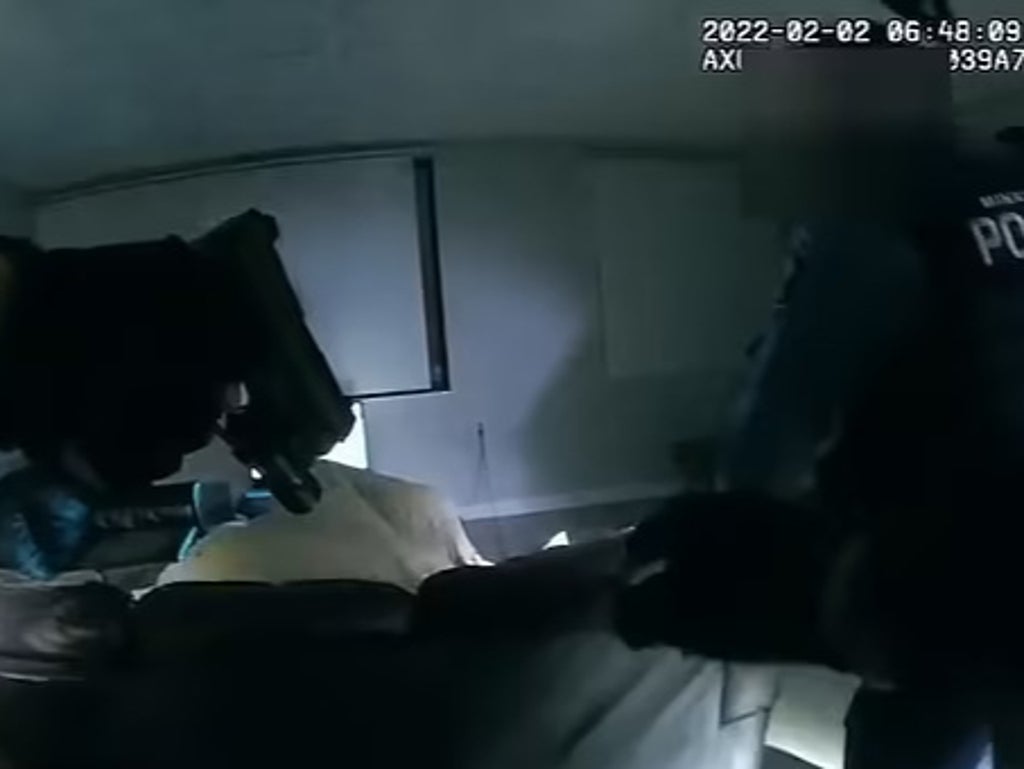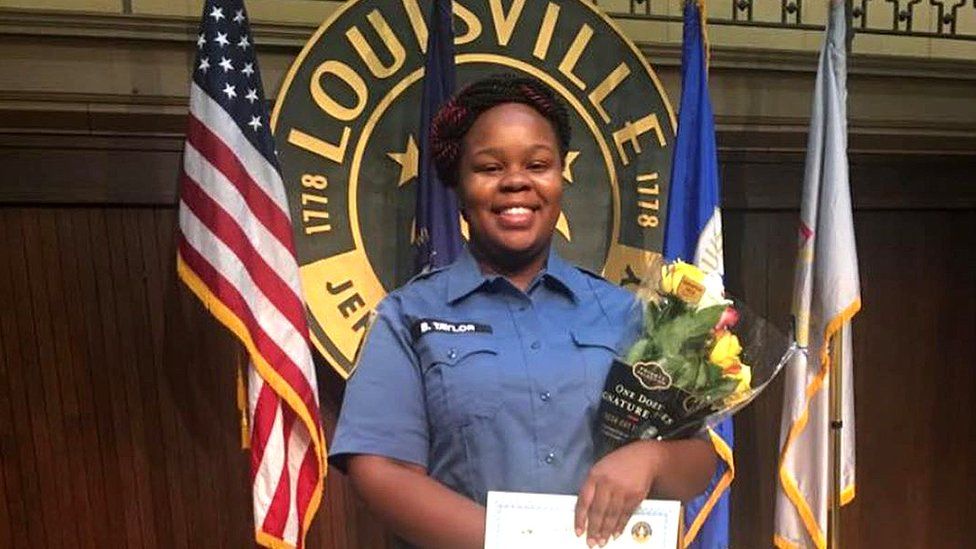
The use of no-knock warrants has been gaining more attention in recent years, specifically since the fatal shooting of Breonna Taylor in Louisville, Kentucky in March 2020.
The Department of Justice issued a new policy in September of last year which limits the circumstances in which no-knock warrants can be used.
“The new policy generally limits the use of ‘no knock’ entries in connection with the execution of a warrant to situations where an agent has reasonable grounds to believe that knocking and announcing the agent’s presence would create an imminent threat of physical violence to the agent and/or another person,” DOJ said in a press release on 14 December.
What is a no-knock warrant?
According to the Legal Information Institute at Cornell Law School, a no-knock warrant is “a search warrant authorizing police officers to enter certain premises without first knocking and announcing their presence or purpose prior to entering the premises”.
The institute said that the use of such warrants can be authorised if announcing the presence of police before entry “would lead to the destruction of the objects for which the police are searching or would compromise the safety of the police or another individual”.
Even if a no-knock warrant is issued by a judge, police tend to announce their presence just before or as they enter the property.
Why are no-knock warrant’s controversial?
The use of no-knock warrants has increased significantly over time, from about 1,500 a year in the early 1980s to between 60,000 and 70,000 in 2010, as the war on drugs ramped up, according to Peter Kraska, professor at the School of Justice Studies at Eastern Kentucky University. He told PBS in June 2020, following the death of Ms Taylor that prompted nationwide protests, that most of the no-knock raids are searches for marijuana.
That same month, the Louisville City Council voted to ban the use of no-knock warrants, with the law being named after Ms Taylor, who was shot and killed by police executing a no-knock warrant during a drug search. Police said they announced themselves when they entered the home, but Ms Taylor’s boyfriend and her neighbour disagree with this version of events.

Louisville’s Democratic Mayor Greg Fischer tweeted at the time “that the risk to residents and officers with this kind of search outweigh any benefit”.
Ms Taylor’s death brought new attention to the practice, with both some Republicans and Democrats announcing that they wanted to end it, but the tactic has faced criticism and legal challenges in the past.
As the government on the federal and local level aimed to restrict recreational drug use, President Richard Nixon started an anti-drug campaign in the 1970s, which gained speed during the presidency of Ronald Reagan in the 1980s.
Congress passed the Anti-Drug Abuse Act in 1986, putting in place mandatory minimum prison sentences for some drug violations. Both federal and local law enforcement agencies started using militaristic strategies such as no-knock warrants in their efforts during the “war on drugs”.
Police also implemented a “quick-knock” tactic to enter some buildings. The point was to remove a suspect’s time to react – to flee, get ready to fight, or dispose of evidence.
Lawyer Mark Wohlander, a former FBI agent, told PBS that repeated court rulings in support of police and their use of no-knock strategies have led to “sloppy” warrants without strong supporting evidence. He added that the fourth amendment, which is aimed at protecting Americans from “unreasonable searches and seizures” has been damaged by the rulings and that it “has really no meaning anymore”.
There’s not a lot of data about no-knock warrants but a Denver Post analysis found that in 2000, judges only rejected five out of 163 requests for such searches. Around a third of those warrants failed to be pre-approved by the district attorney.
Similarly, a Washington Post analysis found that judges in Little Rock, Arkansas approved 103 out of 105 requests for such warrants between 2016 and 2018.
The ACLU found in 2014 that 62 per cent of more than 800 no-knock and quick-knock warrants executed by SWAT teams were drug searches, and they found drugs in 35 per cent of those searches and that they came up with nothing in 36 per cent of the raids. In 29 per cent of the searches, police didn’t indicate if anything was found in their incident reports.
Experts told PBS that entering someone’s home unannounced, usually late at night or early in the morning, increases the risk of violence, especially with the high rate of private gun ownership in the US.
Ms Taylor’s boyfriend said he discharged his weapon, not knowing it was police entering the apartment.
Professor Kraska added that even if drugs were found in all of the searches, the practice is “too risky and extreme of a police tactic to justify making a drug bust”.
Between 2010 and 2016, at least 94 civilians and 13 law enforcement officials died during no-knock or quick-knock raids, according to The New York Times.
The 2014 ACLU report found that 39 per cent of the SWAT team searches were conducted against Black persons, 11 per cent against Latinos, 20 per cent against white people, while 30 per cent were unclear because of lacking information in police reports. The ACLU said 68 per cent of the searches affecting Black and Latino people concerned drugs.







